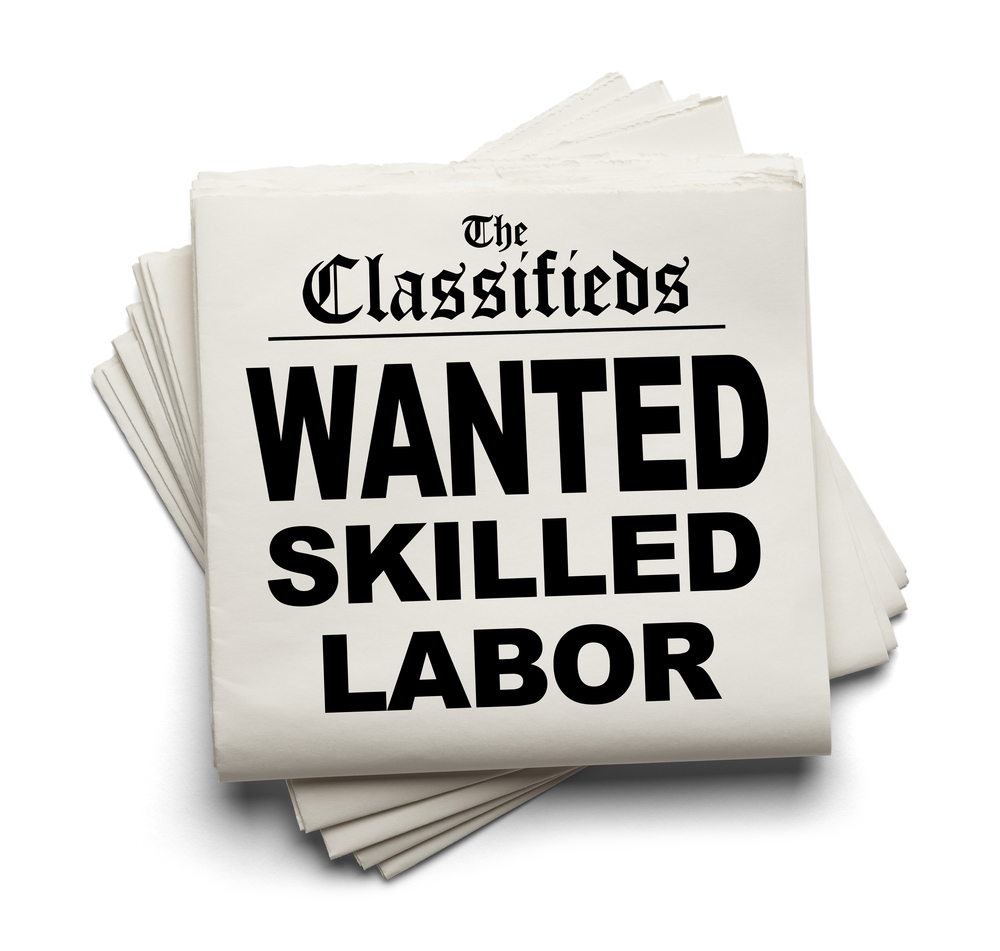
Attracting skilled labor has become a major challenge for many manufacturing companies. The demand for tech-savvy workers is on the rise, and offering applicants competitive pay, benefits, and flexible work schedules may not be enough to win them over.
Manufacturers need to find ways to stand out. One powerful way to help achieve this is by utilizing an advanced enterprise resource planning (ERP) system at your company. Let’s explore how the best ERPs help attract more skilled labor to your company, creating a stronger and more efficient workforce.
What is Skilled Labor in Manufacturing?
Traditionally, skilled labor was associated with professional trades and craftsmanship. Skilled labor refers to work requiring specific technical abilities and expertise, often obtained through education, training, and experience. Skilled laborers possess advanced competencies that enable them to perform tasks requiring precision, problem-solving, and adaptability.
Over time, the scope of skilled labor has expanded to include more high-tech and knowledge-based roles. The use of digital technologies in many industries has changed the skills needed for these jobs. This shift highlights the importance of digital literacy and advanced technical training. The need for niche skills is greater than ever, from procurement and inventory management to product development and logistics.
Key Characteristics of Modern Skilled Labor
- Technical Proficiency: Skilled laborers must have a deep understanding of the tools, technologies, and processes relevant to their field. This can include proficiency in software, machinery, or specific technical methodologies.
- Continuous Learning: The rapid pace of technological advancement means that skilled laborers must continuously update their skills and knowledge. Lifelong learning and professional development are crucial components of maintaining expertise.
- Problem-Solving Abilities: Skilled labor requires the ability to troubleshoot, diagnose issues, and implement effective solutions. This often involves critical thinking and creative problem-solving.

Attract more adaptable, skilled labor with Frontier’s advanced ERP features for optimized operations.
- Adaptability: The modern work environment is dynamic, requiring skilled laborers to adapt to new technologies, methodologies, and industry standards.
- Certification and Credentialing: Many skilled labor positions require formal certification or credentials to ensure a standardized level of competence and safety.
- Soft Skills: Effective communication, teamwork, and leadership abilities are increasingly important in skilled labor roles.
Examples of Skilled Labor Roles in Manufacturing
- Information Technology: Software and network administrators, and cybersecurity experts.
- Engineering: Mechanical engineers and product development specialists.
- Skilled Trades: Electricians, plumbers, welders, and carpenters.
- Production: CNC machine operators, tool and die makers, and quality control inspectors.
The Changing Landscape of Workforce Requirements
The manufacturing industry is evolving rapidly. Manufacturing Dive notes, “Whether it’s repair or maintenance workers, testers or data analysts, a growing number of manufacturing roles are expected to command a basic understanding of the new equipment and environments they’re working in.”
Automation, advanced machinery, and digital tools are now essential parts of the production process. For streamlined operations, AI integration, innovative ERPs, and advanced analytics tools are necessary. This shift means that workers need to have a higher level of technical and problem-solving skills.
Today’s skilled workforce is not just looking for a job, however. Applicants are looking for a company that offers advanced technology, opportunities for growth, and a positive work environment. Skilled labor is in high demand, and these workers are attracted to companies that invest in modern solutions like ERPs. They want to work in environments where they can leverage their skills and contribute to innovative projects.
6 Ways Skilled Workers Benefit From ERPs
An article by In-Finite Search Solutions notes that manufacturing demands craftsmanship, determination, and industriousness. Without these traits, employees may struggle in their roles, impacting company culture and success. The best ERPs offer technology that supports their productivity and efficiency while improving the work environment. This helps skilled workers perform better as well as the tools to advance in the company.
Using advanced ERP systems can make a company more appealing to tech-savvy candidates. When skilled labor sees that a company is committed to innovation and employs the latest technology, they are more likely to join the team. Highlighting the use of progressive ERPs during the recruitment process can significantly enhance a company’s appeal to potential employees.
1. Efficiency and Productivity
ERPs streamline operations by automating many manual processes. This not only increases task efficiency but also reduces errors. For example, tasks like inventory management, order processing, and production scheduling can be handled seamlessly by an ERP system.
Skilled workers notice when a company uses an ERP to simplify repetitive tasks. They recognize that automation allows them to be more productive and effective rather than being bogged down by wasteful tasks.
2. User-Friendly Interfaces
The best ERPs have intuitive interfaces that are easy to learn and use. This means less time spent on training and more time doing productive work. For skilled labor, this is a significant advantage. They can quickly become proficient with the ERP system and perform their duties more effectively.
For example, your lean manufacturing supervisor can analyze and create reports on production KPIs. They can also track resource utilization and material waste with an advanced ERP system.
3. Collaboration Tools
Integrated communication and collaboration tools in the best ERPs foster a collaborative work environment. Skilled laborers value teamwork and communication, making these tools a significant advantage. ERP features like centralized data eliminates data silos and improves interdepartmental collaboration. Plus, automated event notifications and real-time production updates help create a cohesive and engaged workforce.

Frontier ERP’s centralized data allows all departments to access the same information in real-time, enhancing collaboration and reducing frustration.
4. Data-Driven Decision Making
ERPs provide real-time data analytics that supports informed decision-making at all levels of the organization. Skilled workers appreciate being part of a company that uses data to drive decisions and improve processes.
Outdated data from software not integrated with your ERP software can hurt workers’ ability to make informed decisions. Access to real-time data helps them make better choices. It also allows them to solve problems faster and support the company’s success.
5. Reduced Frustration
Manual processes and data entry can be frustrating and time-consuming for your team members. The best ERPs automate processes and improve efficiency, leading to a better work environment. This allows skilled workers to engage in more valuable job tasks rather than frustrating, wasteful assignments.
This is especially advantageous for supply chain management employees. An advanced ERP system for manufacturing can automate inventory replenishment, monitor suppliers, and help identify cost-saving strategies.
6. Employee Empowerment
ERPs empower employees by giving them the tools they need to do their jobs effectively. When skilled employees have real-time data, clear processes, and reliable support, they feel more capable. This helps them feel more confident in their jobs. This empowerment leads to higher job satisfaction and loyalty, reducing turnover rates.
Frontier ERP
A top-tier ERP system improves your operations and helps you provide a better work environment that attracts skilled labor. ERPs offer advanced technology that enhances a supportive work environment, helping build a stronger and more efficient workforce.
Frontier ERP is designed to meet the needs of modern, industry-specific manufacturers and their employees. Skilled laborers will find solace in our easy-to-use interfaces*, advanced features, and automated processes that enhance their productivity and efficiency. Our training resources and communication tools also help you support their continuous growth and the company’s collaborative work environment.
Would you like to learn more about how Frontier ERP can attract more skilled labor and drive your company’s success? *Frontier is an AS400 ERP and IBM i ERP software. Manufacturers can also benefit from our cloud-based GUI ERP if they run on another platform.
*Frontier is an AS400 ERP and IBM i ERP software. Manufacturers can also benefit from our cloud-based GUI ERP if they run on another platform.




